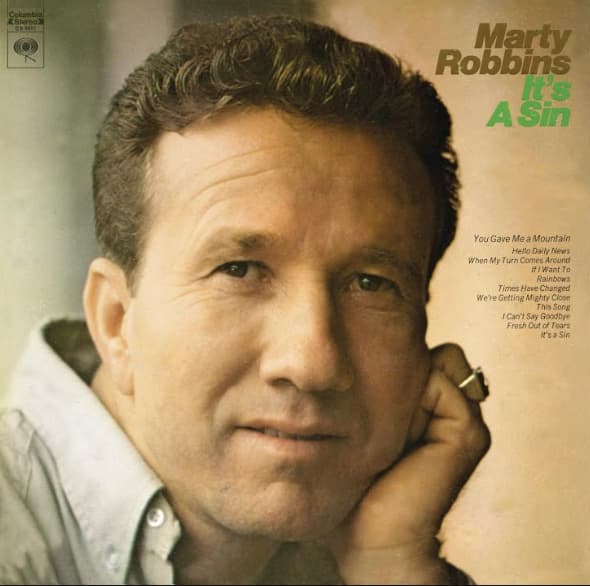
Fresh Out Of Tears: A Lonely Heart’s Lament
A master of mournful melodies and a titan of the genre, Marty Robbins, once again struck a chord deep within the hearts of his listeners with his 1969 release, “Fresh Out Of Tears”. This poignant track wasn’t a major chart-topper like some of his more iconic hits; it was more of a quiet, unassuming testament to heartbreak that resonated with those who had felt its sting. Though it didn’t find its way to the top of the charts, it was a standout track on the album It’s a Sin, a testament to the album’s overall introspective and somber tone. It’s a song that didn’t need a high position on the Billboard charts to prove its worth; its value lay in its raw, honest portrayal of a man who’d reached the end of his emotional rope.
The story behind the song is a simple, yet profoundly human one, a tale as old as time itself. It’s a narrative that countless individuals have lived through, a story of a love that has been so thoroughly and relentlessly painful that it has bled the protagonist dry. The title itself is a powerful metaphor: “Fresh Out Of Tears” isn’t just about a lack of tears to shed; it’s about an utter and complete emotional exhaustion. The singer has wept so much, mourned so deeply, and hurt so profoundly that there is simply nothing left to give, not even the small release of a single tear. It’s a state of being that’s almost beyond sadness; it’s a desolate numbness that follows a torrent of despair.
The song’s meaning is a reflection on the finality of a broken heart. It’s about a man who has given all he has to a relationship that has, in turn, given him nothing but pain. The lyrics speak of a love so destructive it has “used up” all the tears he had in him. This isn’t a song of anger or bitterness; it’s one of weary acceptance. It’s the moment of surrender, the acknowledgment that the well of sorrow has finally run dry. This track captures the quiet moment after the storm has passed, not the one where the sun comes out, but the one where all that’s left is stillness and the debris of what once was. It’s a mature kind of sorrow, one that’s moved beyond the histrionics of heartbreak and settled into a deep, abiding ache. For those of us who have lived a little, who have loved and lost, this song isn’t just a melody; it’s a mirror. It reflects a time when we, too, felt that profound emptiness, that sensation of being hollowed out by grief.
When you listen to “Fresh Out Of Tears”, you can feel the weight of every word. Marty Robbins didn’t just sing the lyrics; he lived them. His voice, rich and full of a world-weary wisdom, carries the emotion with a grace that is unmatched. The simplicity of the instrumentation—the gentle strumming of a guitar, the subtle touch of a steel guitar—allows his voice and the story to be the centerpiece. There’s no flash, no pretense, just a raw, unvarnished truth. It’s this authenticity that makes the song so timeless, a testament to the enduring power of classic country music to tell stories that resonate across generations. It reminds us of a simpler time, a time when music was less about production and more about the connection between the artist’s heart and the listener’s soul. It’s a song to be listened to late at night, in a quiet room, with a glass of whiskey, a song that lets you sit with your own memories, both good and bad, and find a quiet comfort in the shared experience of being human.